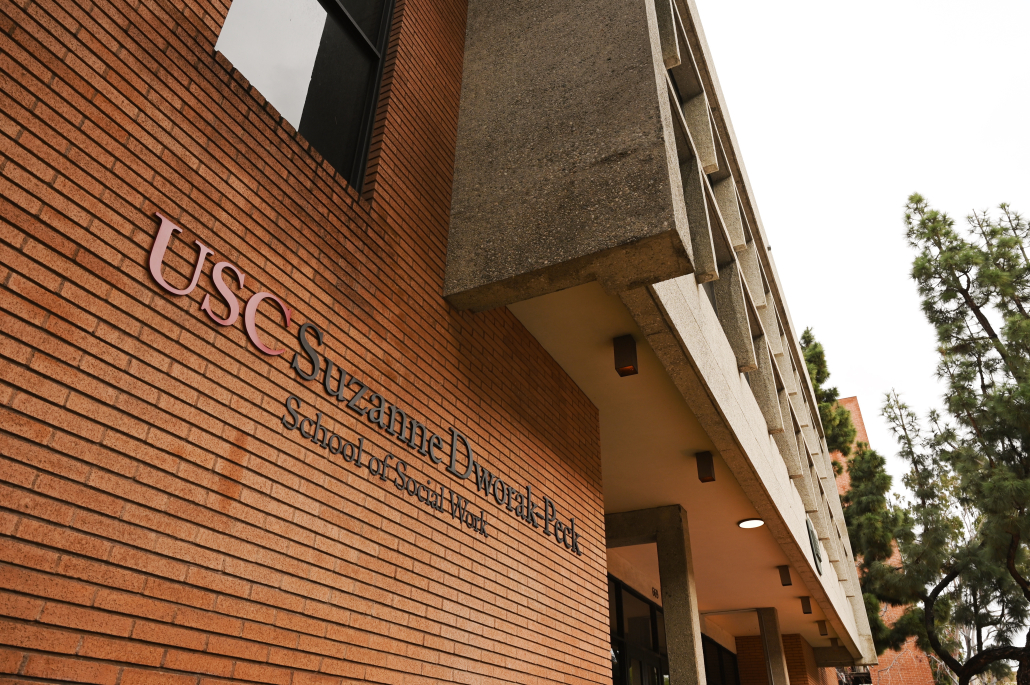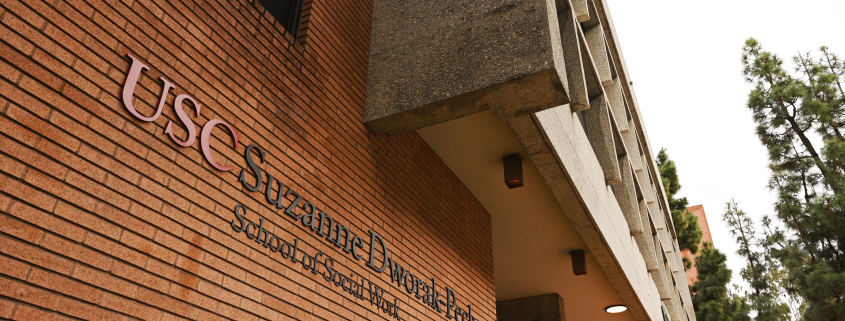“Anti-racist” language change causes confusion among students, community

An office in USC’s school of social work said in a memo Tuesday that it will no longer use the phrases “field work” and “going into the field” in its curriculum, instead replacing them with “practicum.” The office said the change is meant to support its anti-racist social work.
“Language can be powerful, and phrases such as ‘going into the field’ or ‘field work’ may have connotations for descendants of enslaved people and immigrant workers that are not benign,” the memo read.
In an emailed statement to the Daily Trojan, a spokesperson for the newly renamed Office of Practicum Education in the Dworak-Peck School of Social Work — the division that published the initial memo — said it is joining other universities across the nation in making the “best practice” change. The representative pointed to a similar decision by California State University, Northridge.
Twitter pundits quickly seized on the announcement, decrying it as “woke” virtue signaling.
“The university does not maintain a list of banned or discouraged words,” wrote Interim Provost and Senior Vice President for Academic Affairs Elizabeth Graddy in a statement to the Daily Trojan Wednesday. “We will continue to use words — including ‘field’ — that accurately encompass and describe our work and research.”
In a statement late Tuesday night, Interim Dworak-Peck Dean Vassilios Papadopoulos said the Office of Practicum Education made the decision without a formal review process by the school because it is not an academic department, adding that he understands the office made the decision to “more accurately describe its work.”
Students — interviewed by the Daily Trojan on Tuesday both at random on the University Park Campus and specifically in the school of social work — seemed largely split on the school’s decision.
“I’ve never been in a conversation with another Black person that has had a problem with the word ‘field,’” said Leka Mpigi, a graduate student studying architecture. “But I don’t know if that’s because I’m of African descent; I’m not African American.”
Mpigi said she could see why the terms would be taken the way the memo characterized them, but suggested that USC might have “bigger problems” to focus on, specifically admitting more students of color.
“At this point, it looks like we’re fishing for something of relevance,” Mpigi said. “It feels like a stretch.”
For its part, the office noted in its memo that its goal isn’t just to change language.
“We are committing to further align our actions, behaviors, and practices with anti-racism and anti-oppression, which requires taking a close and critical look at our profession,” the memo read. “It also means continuing to work together to train social work students today who understand and embody social and racial justice.”
Paloma Williams, a junior majoring in design, said that if the phrases being replaced originated from slavery or have an offensive origin, she supports the decision.
“Free speech doesn’t make saying offensive things OK,” Williams said.
According to the Online Etymology Dictionary, the term “field work” can be traced back to 1767 in uses meaning “gathering statistics or doing research out-of-doors or on-site.” Merriam-Webster’s website says the term’s first-known use was in 1686, to mean “a temporary fortification thrown up by an army in the field.”
“I have no issue with [the change],” said Maya Borenstein, a graduate student studying social work. “The title of my courses doesn’t really affect me. I’m all for changing language if it’s what they think is correct.”
Borenstein said she doesn’t feel like the change is limiting her own speech. David Lerman, another graduate student studying social work, said he thinks it isn’t his place to judge whether a term is harmful or offensive because he’s white.
“Coming from a background where I had family members that grew up working fields, I don’t think that they themselves would find it particularly offensive,” said Rylan Jimenez, a freshman majoring in engineering. “It just seems a little ridiculous to me.”
Jimenez said he can’t speak for people whose families have been through slavery.
“I feel like I can see both sides of the argument,” said Rozheen Barekatein, a graduate student studying social work. “But at the same time, why are we calling it a ‘master’s program?’”
Correction: This article was updated at 4:10 p.m. on Jan. 11 to reflect that the Office of Practicum Education did not put out a press release about the language change, but rather a memo. The words “change” and “among students, community” were also added to the headline to clarify the nature of the development. The story was also updated to include a statement from Interim Provost and Senior Vice President for Academic Affairs Elizabeth Graddy and to clarify that the change only took place in the Office of Practicum Education. The Daily Trojan regrets these errors.

